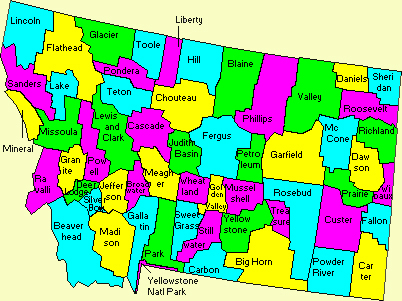| May 28 | |
|
|
|
| DEMOCRATIC PRIMARIES AND CAUCUSES 2008 | Click for Republican primaries and caucuses |
|
| Click for the Obama-McCain general election map | Click for the Clinton-McCain general election map |
News from the Votemaster
Politico has compiled a list of forbidden English words. If you use them in political discourse, you get walloped. Here is a partial list: "sweetie, tar baby, boy, pansy, and articulate." See the article for who used them and what happened. Some foreign words are also taboo (like "cojones"). Not mentioned is that you also have to be careful with animal species (like "macaca"). Probably 300 years from now some anthropologist from New Guinea will be puzzled why Americans had such weird taboos in the 21st century. Hopefully, they will be able to find the Glenn Greenwald column mentioned here yesterday to explain it all.
Most voters now say the economy is the top issue, what with the housing crisis, the gas crisis, the dollar crisis, and a few other crises. The Washington Post has a good story arguing that these economic problems are not separate events that happened to occur at the same time by bad luck. Instead they are all a consequence of Americans living on easy no-questions-asked credit for a decade and now reality is starting to rear its ugly face. The U.S. used to be the world's biggest creditor. Now it is the world's biggest debtor, which has driven the dollar down, the oil price up, and has had other collateral damage as well. All of this may affect the election, but it will also land in the lap of the next President and there are no painfree solutions.
On Monday we examined the details of the Puerto Rico primary. Now let's look at Montana, to be held next Tuesday. The rules are spelled out in the Montana Delegate Selection Plan. Below is a summary of how it will work.
Montana sends 25 delegates to the Democratic National Convention as follows:
- 10 pledged district-level delegates- 4 pledged at-large delegates
- 2 pledged PLEOS
- 5 unpledged DNC members
- 1 unpledged governor (Brian Schweitzer)
- 2 unpledged senators (Max Baucus, Jon Tester)
- 1 unpledged add on
The 10 pledged delegates will be chosen in two districts, which correspond to the two congressional districts back when Montana had two congressional districts. District 1 is the western part of the state, consisting of Beaverhead, Broadwater, Silver Bow, Deer Lodge, Flathead, Gallatin, Glacier, Granite, Jefferson, Lake, Lewis and Clark, Lincoln, Madison, Mineral, Missoula, Park, Powell, Ravalli, and Sanders counties. District 2 is the rest of the state. Here is a map of Montana's counties.

The only poll of Montana puts Obama ahead of Clinton 52% to 35%. Let's assume Obama gets 60% of the primary vote to Clinton's 40%. Each of the districts has five delegates, so with this voting breakdown, Obama will win six district delegates to Clinton's four. The six PLEO and at-large will split 3-3 giving Obama nine delegates to Clinton's seven.
Here is a Montana poll that we didn't report earlier.
| State | Pollster | End date | Clinton | Obama |
| Montana | Mason-Dixon | May 21 | 35% | 52% |
Also a general election poll in Montana.
|
|
The polling results for all primaries and caucuses are available as a Web page and in .csv format.
Obama picked up a couple more supers yesterday. An interesting pattern is starting to emerge. This hasn't been discussed anywhere else, but it seems unlikely to be an accident. If we take the average of the six news sources below, Obama has about 1975 delegates at the moment. He'll probably win about 24 in Puerto Rico, as discussed Monday, bringing his total to 1999. This means he needs 27 more delegates to reach 2026. Montana should be good for about nine, making that 2007. We'll look at South Dakota in a few days, but suppose it is good for eight, making it 2015. It would be very symbolic if Obama was put over the 2026 number by the voters rather than the supers. All it would take is another dozen supers to announce they are for him between now and Tuesday, about two a day, similar to the current rate. So look for Obama to be around 2010 to 2020 Tuesday morning so the voters of Montana and South Dakota can propel him to victory. He could then claim victory in Montana, a surprisingly Democratic state. The governor (Brian Schweitzer) and both senators (Max Baucus and Jon Tester) are Democrats and the Democrats control the state Senate and are two seats shy of controlling the state House. Being put over the top by the voters in a Western state that the Democrats do well in at the state level would get the pundits all excited. Of course, if the DNC's Rules and Bylaws Committee seats Florida and Michigan in anything other than a 50-50 split, the arithmetic changes and Obama might have to release more supers Monday to let the voters put him over the top Tuesday.
Delegates
| Source | Clinton | Obama | Obama-Clinton |
| NY Times | 1776 | 1973 | +197 |
| AP | 1779 | 1978 | +199 |
| CNN | 1780 | 1978 | +198 |
| ABC | 1773 | 1975 | +202 |
| CBS | 1774 | 1970 | +196 |
| MSNBC | 1783 | 1978 | +195 |
Needed to win: 2026
Here is another source for delegate totals.
-- The Votemaster